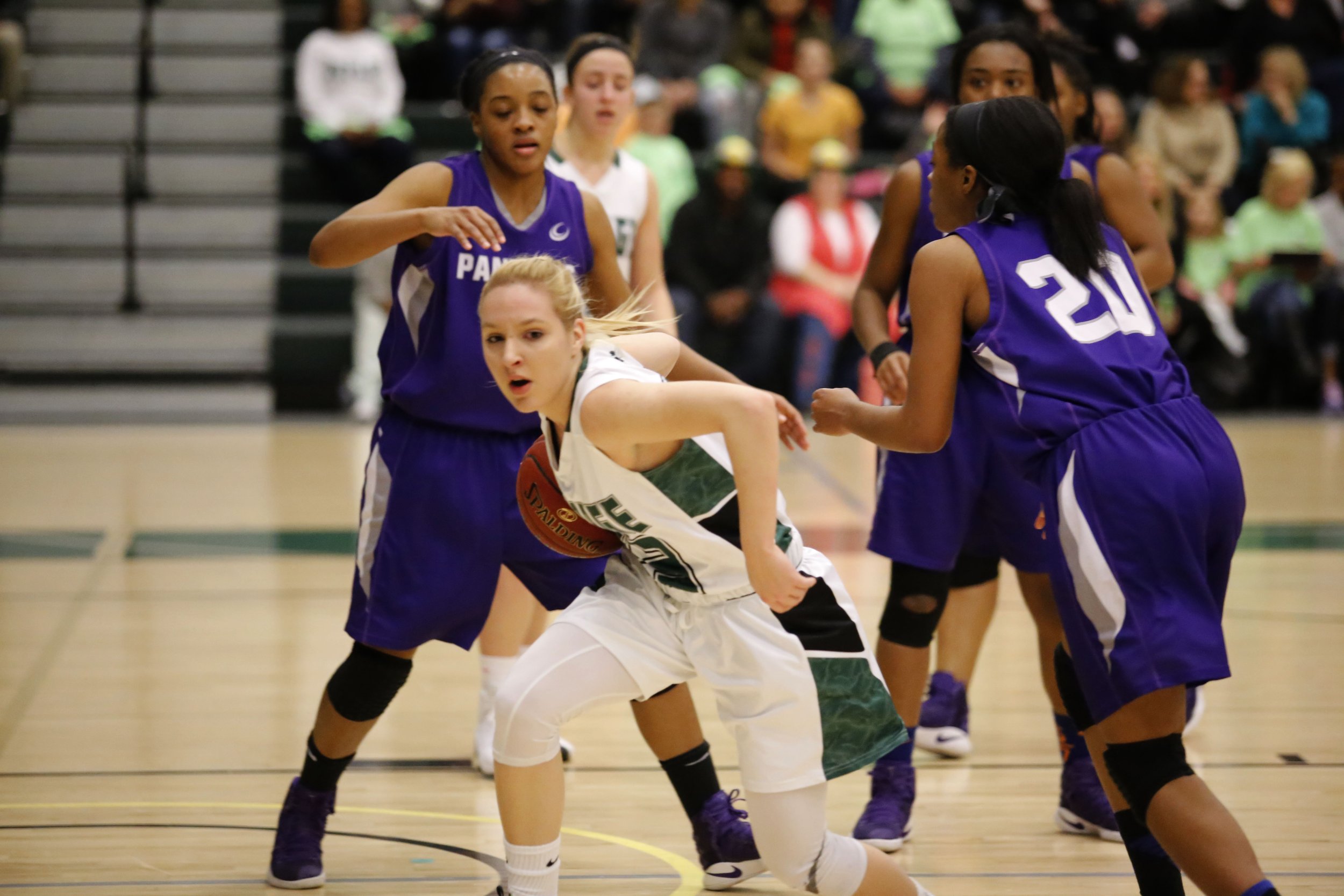Recruiting and Social Media
Social media is a major component in today’s recruiting game. Once upon a time coaches could only interact with athletes over the phone or in person, but today they can watch you through social media without ever telling you they are doing so. I will go over the good, bad, and ugly of social media so that it helps you get the offers you deserve, and not lose them.
Rules on social media usage for college athletes
Social media is a bit confusing because of all of the different platforms that exist. But in general athletes can reach out to coaches at any time but coaches cannot always respond back. Coaches are allowed to direct message recruits and even share or like a post when they are allowed to have contact with recruits which is normally after sophomore year of high school. Interestingly coaches are not allowed to public comment on a recruit unless they are recruiting, but may do so after you are committed.
Contact Periods by Date
January 1st of Sophomore year
Men’s Ice Hockey
June 15th of Sophomore Year
D1 Men’s Basketball
D1 Other Sports (Not listed for Sept 1)
September 1st of Junior Year
D1 Football
D1 Baseball
D1 Softball
D1 Men’s Lacrosse
D1 Women’s Lacrosse
D1 Women’s Basketball
D2 All Sports
Anytime
D3 All Sports
NAIA All Sports
NJCAA All Sports
What do college coaches use social media for in recruiting?
Social media is primarily used in the recruiting game by coaches to evaluate a recruit they have already targeted. But that evaluation is often not just about their talent. In the information age, people are self-publishing more and more about themselves, so much so that employers often use social media to determine if the person they are considering is right for the job. College coaches are using social media primarily this way. Your personality and even your character can be evaluated much more than your talent through social.
Coaches use social media to interact with recruits because it is often the most convenient way to do so. But it cannot be emphasized enough that coaches do not typically go to social media looking to “discover” new talent. Their priority is almost always to learn more about someone they already are interested in. If you present yourself poorly social media can make a coach lose interest, but it will rarely be the reason that a coach has gained interest. Your profile should allow coach to have positive reinforcement that you are a quality student-athlete and one they should welcome to their program.
How to use social media as an athlete
A good social media account should make a coach feel confident about recruiting you at first glance. Think of it as a resume for your professional and athletic character. Many coaches may see something you post and never mention it to you. Follow the following steps to have your social media account help your recruiting odds.
Don’t be afraid to use multiple social platforms. The goal for recruiting through social is for coaches to be able to find you easily. Use your real name in your screen name and manage accounts across multiple platforms like Instagram, TikTok, and Twitter. Try to make it as easy as possible for coaches to find you.
Be actively engaged on your accounts. This is not so much about posting all the time, but at least periodically like once a week so that it is clear you use the account. Check the account daily to see if you have any messages from coaches as well so you can follow up quickly.
The content you post should be positive content that represents you as a student-athlete. If it is not relevant to your athletics, or academics then you should not post it. If it portrays you in any way that is unprofessional than you should not post it. Your social media presence is one that should be “managed” where you control the message you send out to coaches.
Coach Rob’s Note: Don’t go under-recruited! I put in the hard work for you to know exactly which colleges already want to recruit you, which ones will view you as a top recruit, and how to get their attention. Book a meeting with me, Coach Rob, and see how easy it can be to get the offers you deserve!
Tips for building your athlete social media page
Setting up your page is about communicating relevant recruiting information well. Your bio is the best place to start where your hometown, current school and travel team, graduation year, and even your GPA should be listed. Your sport, along with your event/position should be included with a profile photograph of you competing.
If a college coach is interested in you then they will put in the homework to evaluate you further. Provided that your recruiting profiles, highlights, etc. are easy to find from a quick google search then you should not be too concerned with overloading them into your bio. Remember coaches are using social to evaluate you in a more personal way, but a reel video of your highlights will likely not be the reason why they offer you a scholarship. Social media is a tool, but not the only one coaches will use to recruit you.
Your posts should be relevant sports accomplishments primarily along with academic ones. Highlight clips, awards you received, college visits, camps you’ve attended, college offers, and anything else relevant to your career can be shared. If you share these things more organically as they happen it will work best for your recruiting. Your profile should feel less like you are hyping yourself up and more like you are sharing a day in the life of you as an athlete.
Coach Rob’s Note: Sharing content that celebrates your teammates is a great way to tell a college coach that you are a team player.
Tips for Posting College Offers
The truth of the matter is that some recruits do attempt to “collect” offers. This is a double edged sword. On one hand, putting out a post that you are thankful for an official offer from a school can be positive. It can make you more desirable to another coach to know that someone else already sees value in you. However, it can be negative when you come across as someone who is collecting a lot of offers. Other coaches may stop taking yo seriously since they can conclude you are essentially giving schools the run around in order to have as many offers as possible.
Social media is a tool, but it is not the only means of communication. If you are building a relationship with a coach then you should be talking with them, and it will come up as a topic of discussion what other schools you are considering. If it appears that you are announcing information to a coach you have already spoken to on social media, then you can even come across as dishonest.
Coach Rob’s Note: If you do post an offer, make a unique post and express thanks for the school’s consideration. Tagging the coach is also a good step to promote transparency. Some athletes have even lied on social media, saying they are being recruited by schools that are not. And of course this kills their credibility going forward with coaches.
Your recruiting account should be a public social media account
If your account is not a public social media account, it defeats the purpose of having one. College coaches come to social media to view what you post, and to interact with you. They cannot do either without having access to you. Considering that many recruits already have public profiles it can send a message to a coach that you are hiding something that you don’t want them to see, by having a private account.
Coach Rob’s Note: Until junior year most coaches cannot interact with you on social, but they can keep an eye on you that way. A public account can make it easier for a coach to develop interest in you as they follow what you post.
Interacting with teams and coaches
If you are interested in a school and you are active on social media, it helps to follow the coach or the program. You can learn more about them and it shows that you are serious about them. Liking content, they posted further communicates your interest. This is most effective once again if you already are developing a relationship with a coach. Simply following a college coach or their team on Instagram will likely not make them develop interest in you.
Tips for Direct Messaging College Coaches
I do not recommend you ever send a cold message to a coach. Coaches should be actively recruiting you and expressed some level of interest before you begin any type of texting, or direct messaging. But once that relationship has been established, direct messages can be effective since they are easier to respond to than a formal email. Unlike a text message, a coach will not see a direct message likely until they click on the app so know that the response times may vary.
However, if a coach messages you directly that is a great sign. Respond quickly and always be professional in your responses, expressing gratitude for their consideration. If you fail to respond, it will likely push that coach away. If you have a particularly strong relationship building with a coach you can go so far as to directly share a highlight video or other relevant post to a coach as a message.
Coach Rob’s Note: Although “DMs” are an informal communication platform you should still avoid informal language in your message. Address the coach by name, and proofread your responses.
Dos and Don’ts on social media
Follow the following rules to make sure that social media helps your recruitment. Failure to do so can be the reason a school loses interest or even pulls an offer from you.
Dos
Share your athletic and academic honors and achievements
Express gratitude for your coaches and teammates
Show off your personality in a respectful way
Keep your posts positive
Don’ts
Avoid all profanity, or potentially offensive language or posting
Never post anything involving illegal activity including alcohol and drugs
Avoid posting about things unrelated to your athletics and academics
Protecting and cleaning up your social media account
Today hacking social media accounts is a regular thing. The concern for recruits is that a hacker can use your account to do things that misrepresent you. In order to avoid this you should turn on two-factor authentication which will make it much harder for someone to hack in.
If you have had an account for some time, you should look at all your old posts and delete anything that doesn’t fit with your recruiting identity. Even things that people have tagged you in can be seen by coaches so if you have a question about whether or not it is appropriate, it is best to leave it off.
Coach Rob’s Note: College recruits lose scholarship offers all the time. Coaches will do their best to investigate who you are before they bring you on campus. Take the steps to clean up your profiles yourself and maintain that identity because the consequences can lose you the very college offers you worked so hard for
Coach Rob is a recruiting expert and the Founder of SCA Recruiting. He is also the author of the book Winning the Ship: How to Win the College Athlete Recruitment Game. Available now on Amazon.

“93% OF HS ATHLETES DON’T PLAY IN COLLEGE… BUT I WILL HELP YOU BEAT THOSE ODDS. I GUARANTEE IT.”


